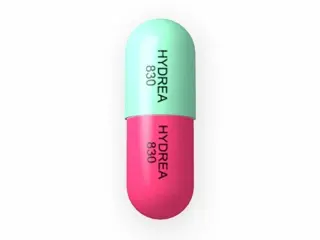Cancer


Find effective cancer treatments and supportive care medications at competitive prices. Browse our wide selection of oncology drugs designed to support your health and recovery journey. Safe, reliable, and available for purchase online.
Cancer is a complex disease that requires various treatment options. Many medications are used to manage cancer and its symptoms. This category includes several popular drugs. Each medicine has a specific purpose and mode of action. Patients should always follow medical advice when using these drugs.
Aldara is a topical cream. It is mainly used for certain skin cancers and pre-cancerous lesions. Its active ingredient is imiquimod. Aldara works by stimulating the immune system to attack abnormal cells. It is often applied on the skin several times a week. Side effects might include redness, itching, or irritation at the application site.
Alkacel contains melphalan. It is a chemotherapy agent used for multiple myeloma and ovarian cancer. Melphalan is an alkylating agent that interferes with cancer cell DNA. It helps stop cancer cells from growing and dividing. This drug is usually given in tablet form. Patients should be monitored for low blood counts and potential infections.
Armotraz is a hormonal therapy. It contains letrozole, an aromatase inhibitor. This medication is mainly used for hormone receptor-positive breast cancer. Armotraz lowers estrogen levels in the body, slowing cancer growth. It is typically prescribed after surgery or chemotherapy. Common side effects include hot flashes, joint pain, and fatigue.
Capnat is a medication used to treat various cancers. It contains capecitabine, a chemotherapy drug. Capecitabine is converted into 5-fluorouracil inside the body. It works by disrupting cancer cell growth. Capnat is given as oral tablets. Side effects can include diarrhea, nausea, and hand-foot syndrome.
Casodex contains bicalutamide. It is a non-steroidal anti-androgen drug. Casodex is used for prostate cancer. It blocks the action of male hormones that promote cancer growth. Usually, it is combined with other hormone therapies. Common side effects are breast swelling, hot flashes, and liver changes.
Hydrea is hydroxyurea. It is used in some blood cancers, such as chronic myeloid leukemia and polycythemia vera. Hydrea works by inhibiting DNA synthesis. This slows down the rapid multiplication of cancer cells. The drug comes in capsule form. Patients should watch for low blood counts and infections.
Leukeran contains chlorambucil. It is an alkylating agent used in chronic lymphocytic leukemia and some lymphomas. Leukeran damages cancer cell DNA, preventing their growth. It is available as tablets. Side effects include nausea, fatigue, and bone marrow suppression.
Methotrexate is a well-known chemotherapy and immunosuppressive drug. It treats many cancers, including leukemia, breast cancer, and lymphoma. Methotrexate inhibits folic acid metabolism. This action blocks DNA synthesis in cancer cells. It is given orally or by injection. Common side effects are mouth sores, nausea, and low blood counts.
Nolvadex contains tamoxifen, a selective estrogen receptor modulator. It is widely used in breast cancer treatment and prevention. Nolvadex blocks estrogen receptors on cancer cells. This stops hormone-driven cancer growth. It is taken as oral tablets. Side effects might include hot flashes, increased risk of blood clots, and uterine changes.
Xeloda contains capecitabine, similar to Capnat. It is commonly used for colorectal and breast cancers. Xeloda is a prodrug that converts to 5-fluorouracil inside the tumor. It disrupts DNA replication in cancer cells. The medicine is available in tablet form. Side effects may include diarrhea, hand-foot syndrome, and fatigue.
Zofran is ondansetron. It is not a cancer treatment but an important supportive drug. Zofran prevents nausea and vomiting caused by chemotherapy. It works by blocking serotonin receptors in the brain and gut. This helps improve the quality of life during cancer therapy. It is available as tablets, orally disintegrating tablets, or injections. Side effects are rare but may include headache and constipation.
In summary, the cancer medication category contains a mix of chemotherapy drugs, hormonal therapies, and supportive care medications. Each drug has unique mechanisms and side effects. Proper use under doctor supervision is essential. These medications have helped millions of patients worldwide. Advances continue in cancer pharmacology, aiming for better efficacy and fewer side effects.














